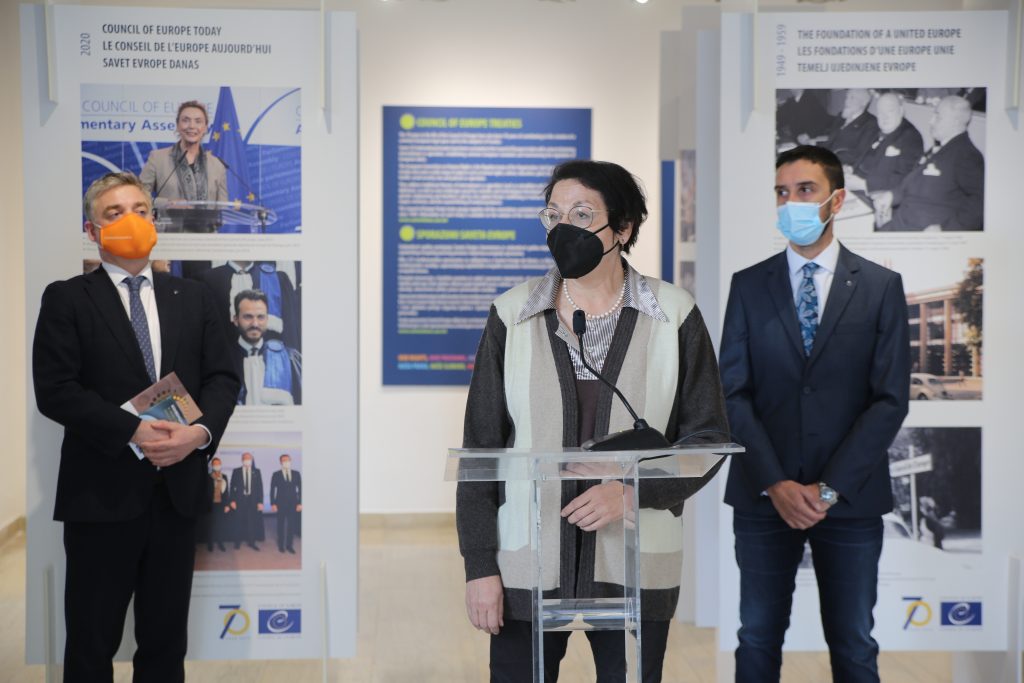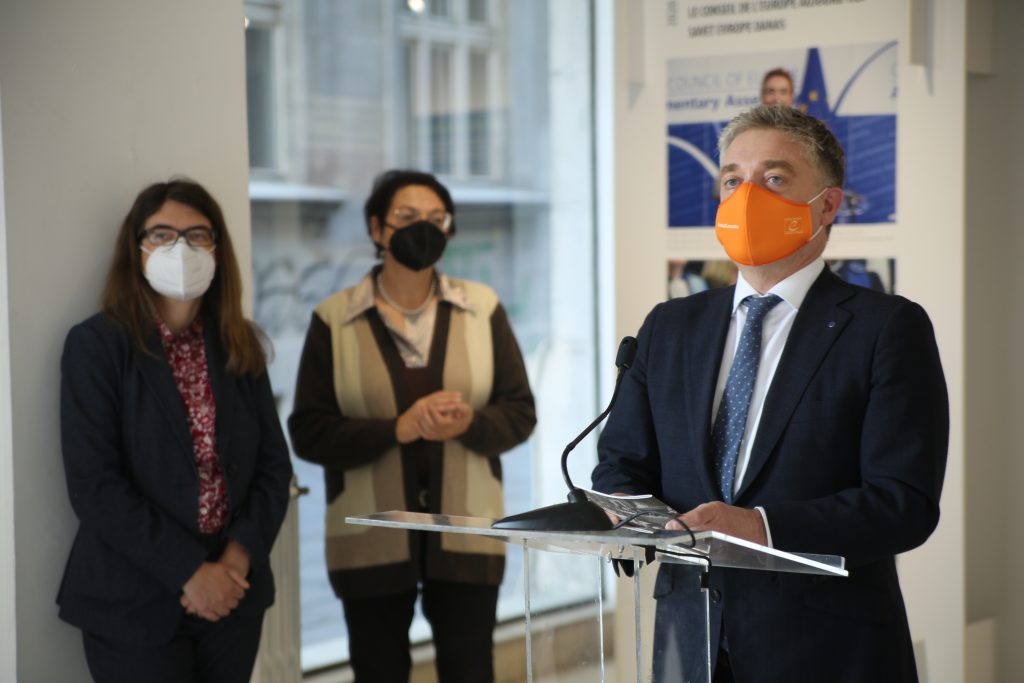The European Convention on Human Rights (ECHR), the crucial document on the European continent protecting democracy, rule of law and human rights of more than 830 million people in Europe, celebrates its 70th anniversary this year. On this occasion, the Council of Europe Office in Belgrade opened today an exhibition that will be welcoming visitors until 18 December.
Jasna Dimitrijević, the director of the Ilija M. Kolarac Endowment that is hosting this exhibition, welcomed guests on behalf of the Endowment and expressed gratitude to the Council of Europe for the opportunity to mark this important jubilee together with Kolarac.

Gordana Čomić, Minister for Human and Minority Rights and Social Dialogue of Serbia, said: “70 years ago, the ECHR has codified what the European spirit, the European culture present – that all human beings are equal before the law, that all human beings have equal rights and we must respect those who are different from us, because we are all the same human beings. Sixteen years ago, Serbia ratified the Convention and committed itself to making the protection of human rights a part of everyday life in Serbia, because it benefits everyone. I believe that human rights are the only thing that protects us from all the misfortunes that we, as a civilisation have experienced many times in the past.”
Head of the Council of Europe Office in Belgrade, Tobias Flessenkemper, thanked the German Presidency of the Committee of Ministers of the Council of Europe for the support in setting up of the exhibition. „Over the next four weeks, through this exhibition and series of other events, we want to give the space to everyone for the debate about human rights, an opportunity for getting more information on the Convention and the protection of human rights in Serbia and Europe“, he stated. „Today, 25 November, we are also marking the Orange Day, the Day against Violence Against Women. We will continue to fight for ensuring that every woman can feel in peace and safety in her own home and elsewhere, and can live a life free from fear, violence and aggression“, he said in his opening remarks, stressing in this regard the importance of the Istanbul Convention that Serbia joined in 2014, the Council of Europe treaty meant to prevent and prosecute violence against women, as well as to protect victims.

Dorothea Gieselmann, the Deputy Ambassador of Germany to Serbia highlighted that the German Presidency of the Committee of Ministers is unrolling in very interesting times. “First of all, there is the COVID-19 pandemics that shows us that there are always new challenges to the human rights acquis, even 70 years after the European Convention was drafted”, she said. “Also, for the remainder of 2020, Germany holds the Presidency of the Council of the European Union. We will use this rare opportunity to generate synergies, in particular with regards to the accession of the EU to the European Convention of Human Rights, which would be a decisive step towards the coherent protection of human rights all across Europe”, Ms Gieselmann added. “During our Presidency, we will also focus on minority rights and artificial intelligence: the level of minority rights protection and promotion is a very important indicator of the human rights situation in general, and the digital domain must not be a place without rules”, she concluded.
The exhibition has been organised with the support of the Council of Europe’s project “Strengthening the judiciary reform process in Serbia” funded by the Federal Republic of Germany.
The exhibition presenting the 70 years of the history of the Council of Europe and the Convention will run until 18 December 2020; it will be open to public every working day from 10:00 to 18:00, and on Saturdays in the morning.
A series of events, in-person and online, to present the activities of the Council of Europe in Serbia will be held on the margins of the exhibition in November-December. These will include presentations and panel discussions on human rights and the rule of law, underlining the contribution of the Council of Europe to further the protection of the rights of people of Serbia, in line with European standards.
All the public events conducted will strictly follow the sanitary measures taken by the Serbian government and the Council of Europe in the context of the COVID-19 pandemic.


